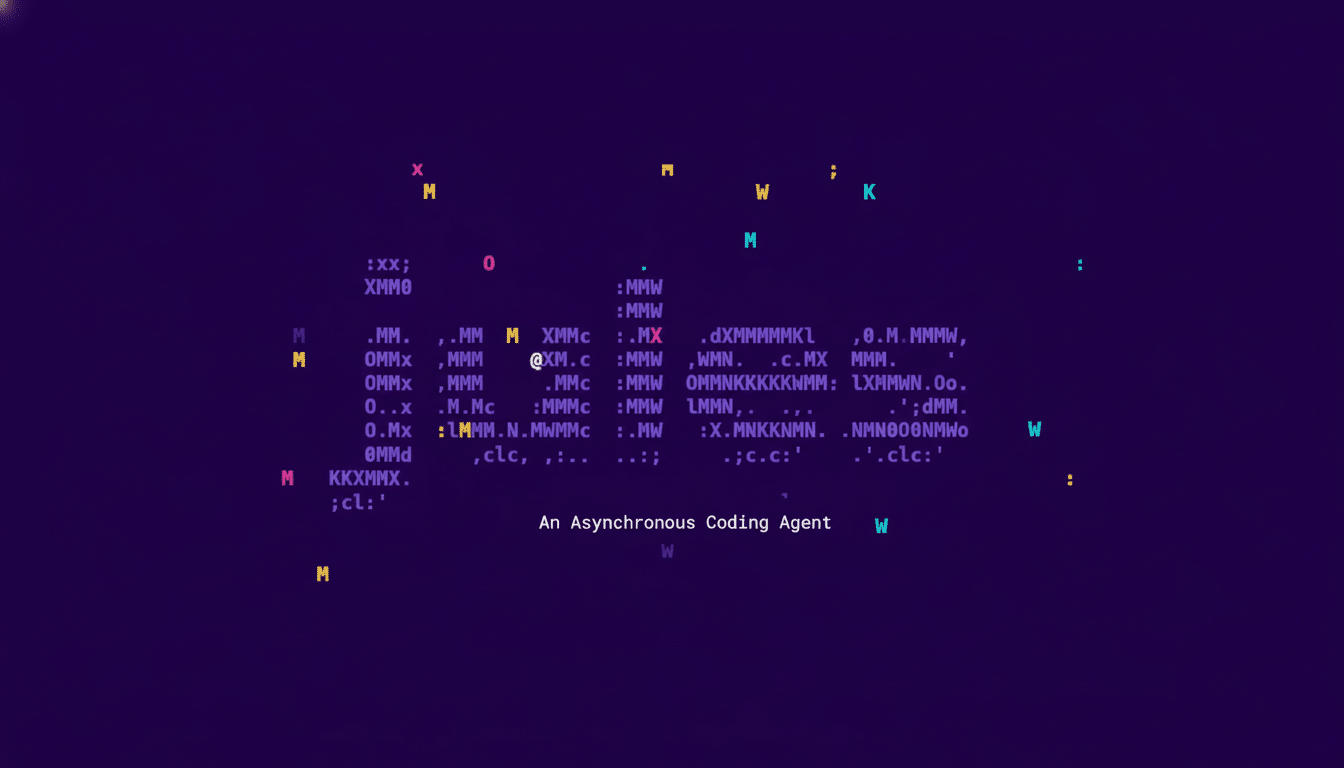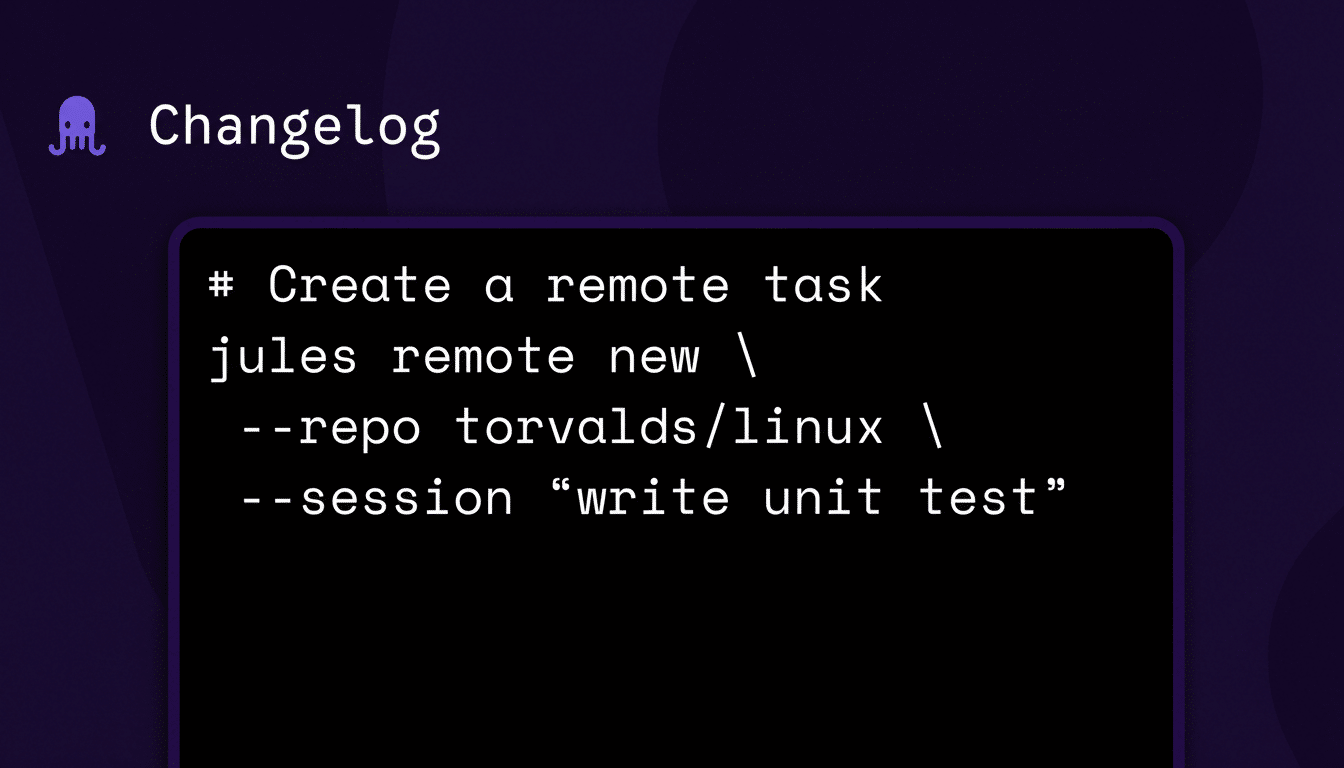Adding to a slumbering pair of molecular-based, meditative programmers—Gemini CLI and Gemini CLI GitHub Actions—is the command-line companion with a human name, Jules Tools.
In the end, I don’t want to jinx myself until I can do another week of hands-on use, but it feels like the setup finally clicks: Gemini as fast-iterating reasoning at the terminal, GitHub Actions handling automation in CI generally (with Jules Tools YouTube Workflows to pass real work off to an autonomous agent that operates in cloud space while you code).
- What Jules Tools Actually Does for Developers
- How It Compares To Gemini CLI And GitHub Actions
- My CLI Workflow That Actually Saves You Time
- What Makes Velocity Better And What Doesn’t
- Evidence That This Approach Reflects Industry Trends
- Some Practical Tips Before You Dive Into This
- Bottom Line on Using Gemini CLI, Actions, and Jules

What Jules Tools Actually Does for Developers
Jules Tools is an interface between the terminal and Google’s Jules coding bot. You don’t babysit this; you’re in and out. Unlike monitoring tasks from a web dashboard, here you spin up, monitor, and fetch results all from the command line. Jules runs in a managed environment, ruminating on how it wants to approach things and verifying with explicit consent when required, cutting patches or pull requests for inspection locally.
This matters because long-lived or multi-step changes—updating dependencies, building test scaffolding, retargeting an API—should have a capable agent that can work asynchronously with memory of the plan. Jules Tools has let me queue background refactors while I’ve continued working in my editor, then pull down diffs when they’re ready and run them through our CK test suite before hitting submit.
How It Compares To Gemini CLI And GitHub Actions
Gemini CLI is the hotline to Google’s models, straight from your shell. It is open source on the client side, extensible, and great for ad hoc reasoning, code explanation, and small editing tasks. Crucially, it is able to follow “reason-and-act” loops like the ReAct approach published by researchers from Google and Brown University that can guide you through steps in tasks interactively rather than just answering once.
That’s where Gemini CLI GitHub Actions comes in. Within CI, it has the capability to review pull requests, comment on issues, and execute checks as part of a workflow. I lean on it for predictable, policy-style jobs: lint checks, changelog assembly, and drafting PR descriptions. It’s fast, it’s deterministic, and it lives where compliance teams want it — in the pipeline of the repo.
Jules Tools, on the other hand, is all about delegation. You pass it a well-scoped assignment, and it runs in a controlled workspace with tooling, but not on your process or CI runner. Remember, Gemini CLI is your pair programmer and Jules is your contractor who can take a ticket and come back with a patch.
My CLI Workflow That Actually Saves You Time
The trio excels at issue triage. I’m using the GitHub CLI to get a list of my issues, piping that text into Gemini for quick labeling, and getting a shortlist back. Once there, I shoot off all the boring ones—bulk config updates, docstring tweaks, flaky test isolation—to Jules over at Jules Tools so I can keep the hairy architectonic stuff for me.
It’s a pattern: grab structured issue data with gh CLI, parse with a lightweight tool like jq, ask Gemini to label or score by criteria I care about, and forward one single issue into a Jules session. No brittle glue code, just reusable shell pipelines. Now it’s a one-liner muscle memory that converts inbox chaos to a prioritized work queue.
I also use Gemini CLI for “explain before edit” flows. For instance, I’ll drop in a failing stack trace and open files and get a short hypothesis, then ask it to produce a minimal patch for it. If the change involves multiple packages, or I need to write new tests, etc., then I escalate up to Jules Tools (which can create branches and stage a PR). That cascade leaves the fast loop fast and the slow loop self-driven.

What Makes Velocity Better And What Doesn’t
Speed and targets are the guardrails. Gemini CLI is very snappy, and great for tiny, repetitive requests. Jules takes a little longer, on purpose, because it draws up a plan and does the steps in more of a sterile area. I batch my Jules tasks; I scope them very tightly, and let it flow while I am doing code reviews or writing docs.
Cost and reliability also matter. Both tools are metered; longer-running agent work will eat up more of your budget than short prompts. Keep tasks atomic and checkpoint progress: make Jules push a branch early, not only at the end, so that you can potentially salvage some of your work if you hit limits. This follows the spirit of CI/CD and avoids annoying retries.
For code quality, my best results come from giving the agent solid acceptance criteria: target test files, style rules, and performance throughput. That is consistent with what GitHub has heard from enterprise AI deployments: teams that define guardrails and success metrics have greater adoption and fewer rollbacks. Clear goals trump fuzzy intention every time.
Evidence That This Approach Reflects Industry Trends
GitHub’s 2023 study on AI in software development revealed that a vast majority of professional developers were already using AI coding tools to some extent, with productivity gains being the largest on repetitive tasks. The 2024 Developer Survey by Stack Overflow noted widespread adoption of AI assistants across languages and frameworks, for instance. That is the very divide I see: assistants for quick feedback, agents for long-term execution.
Some Practical Tips Before You Dive Into This
Keep scopes small and explicit. ‘Upgrade library X and fix breaking imports in module Y’ works; ‘modernize the service’—not. Give lists of paths, commands, and tests that the agent should run, and insist on a PR with a list in the description so that reviewing is easy.
Wire guardrails. Have Gemini Actions summarize diffs and flag risky changes in CI. Run pre-commit hooks locally for any patch that Jules proposes. Add a dry-run step for destructive invocations, and have timeouts where applicable so slow processes don’t just consume existing resources.
Last but not least, establish a good handoff: discovery and quick edits in Gemini; promoted down to Jules if the work is cross-file, requires scaffolding, or benefits from a plan. That division empowers you; the agent tackles the dirty work.
Bottom Line on Using Gemini CLI, Actions, and Jules
Jules Tools finally makes Google’s AI tooling at the command line feel cohesive. Reach for Gemini CLI when you need to reason quickly, GitHub Actions for more predictable automation, and Jules Tools when it is time to delegate real work. As a threesome, they don’t replace engineering judgment; instead, they multiply it, if you give each tool the right job.

